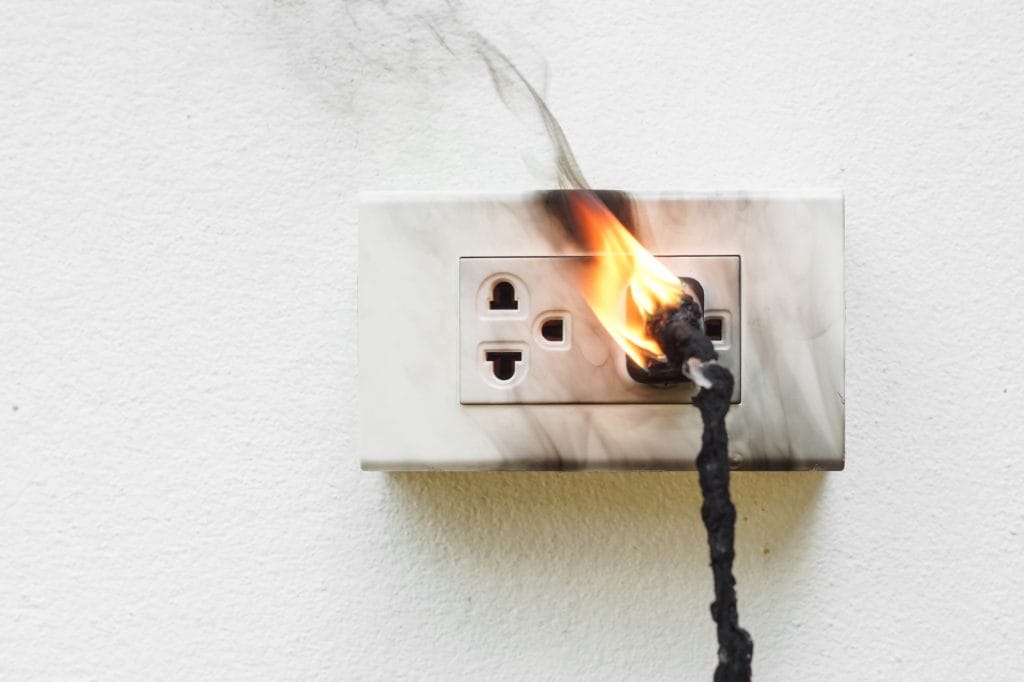In the United States, electrical overloads cause 47,700 home fires each year, resulting in 418 deaths and $1.4 billion in damages.
The tragic part about these deaths is that they could be easily prevented if someone was paying attention.
Want to learn more about how you can prevent an overloaded circuit? Read on.
Why Do Circuits Overload?
Circuits overload because you are passing more electricity through the circuit than it was designed to handle.
Typically, this overload leads to a breaker flipping, shutting off the flow of electricity. If there is no breaker to stop the electricity, or if the breaker malfunctions, overloads can lead to devastating fires.
How to Prevent an Overloaded Circuit
The best way to avoid the harms of an overloaded circuit is to prevent your circuits from ever overloading in the first place.
Here are the top two ways to do this.
1. Never Use More Electricity Than the Circuit Is Rated for
This is a very simple yet effective way to prevent circuit overloads. Circuits overload when you use more electricity than the circuit is rated to handle.
If you never pass this threshold in the first place, then the circuit doesn’t have a chance to overload.
This technique, of course, requires you to know how much electricity your circuit can handle and how much electricity your appliances are using.
To do this, use this handy equation: p/w=i. This equation stands for wattage divided by volts equals amps.
Using this equation, first find the wattage that your appliances or devices are using. (This should be easily available on the devices themselves.)
Then, divide it by the total amount of volts running through your house (typically 120).
The resulting number is the number of amps produced by your devices. Compare this number with the amp rating on your electrical outlet.
If the amount of amps exceeds the rating of the outlet, you are at great risk of a circuit overload.
2. Hire Someone to Look at Your Wires
Faulty wiring can also contribute to overloaded circuits, resulting in a house fire.
If you don’t know the current state of your house’s wiring, it might be a good idea to hire someone to look at it.
Some houses were constructed before modern safety standards, and still, others were built more recently but unsafely.
What to Do When a Circuit Overloads
What should you do if your best efforts fail and your electrical circuit overloads? Here are some steps you can take.
1. Reset the Breaker
Sometimes overloaded circuits are benign. Your circuit breaker does its job, and the electrical flow is shut off before it can cause a fire.
In this case, all you need to do is flip the breaker back to its normal position and stop using so much amperage.
2. Get Out of the House
If you see smoke, get out! This means that the electrical fire has already begun and it’s too late to stop it.
Evacuate, call 9-1-1, and make sure that your loved ones are safe.
3. Hire Someone Who Can Fix It
How to fix an overloaded circuit? You or I certainly don’t know the answer to this nearly as well as professionals who work in the field.
If your circuit overloads but there isn’t an imminent fire, check out Wired Electrical Contracting. They offer excellent emergency electrician services.
Even if you don’t think something is terribly wrong at first, it’s better safe than sorry.
Take Action!
We hope this guide has inspired you to take control of your electrical wiring.
Whether it motivates you to plug fewer things into your outlets or to hire an emergency electrician to prevent catastrophe, we hope it has alerted you to the very real dangers of electrical overloads.







